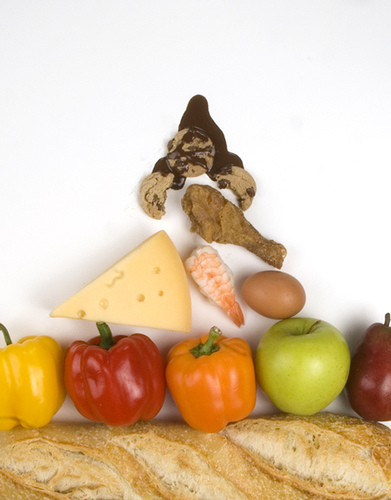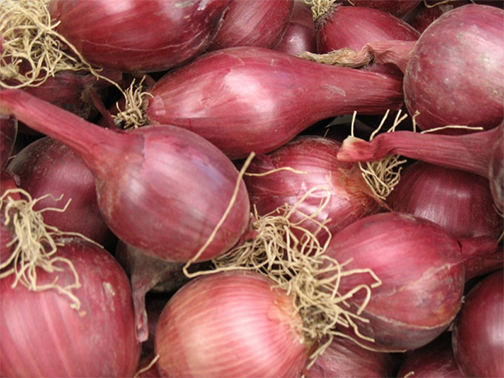CSAs
-
Food safety: How local can you go?
Photo: Beth RankinThe Food Safety Enhancement Act of 2009 (FSEA) draft, was introduced in the House of Representatives by Congressman Waxman on May 26, 2009 and is expected to move quickly through the House. Consumers, farmers, and manufacturers alike all appear to be for a food safety bill, so the question is not whether a […]
-
In the lush dirt of Iowa, community grows alongside veggies
ZJ Farms: Everyone’s a farmhandI had the pleasure the other day of visiting ZJ Farms, the anchor of Local Harvest CSA, which is one of the biggest in the area. Farmer (and pillar of the local food scene hereabouts) Susan Jutz has been running this organic farm for all the years I’ve been buying food […]
-
Globalization failed, cheap oil is gone, local production is the only way forward
Bigger is always better, isn’t it? Big cars, big houses, big businesses, big farms. If you were big, you made more money. Clearly, that is the way of the world. When Europeans colonized the Americas, they wanted more land — not some of it; all of it. Napoleon wanted more land. Nothing stopped him until […]
-
Ironically, a lost battle against a hog factory planted the seeds for a sustainable farm
In "Dispatches From the Fields," Ariane Lotti and Stephanie Ogburn, who are working on small farms in Iowa and Colorado this season, share their thoughts on producing real food in the midst of America's agro-industrial landscape.
-----
One Step at a Time Gardens is a model of agricultural sustainability. Over 50 varieties of vegetables grow in rotation on six acres of fine Iowa topsoil that receive no synthetic chemicals. Compost, cover crops, and chicken manure feed the soil. Pests and weeds are kept at bay through the use of physical barriers, biological products, and cultivation. The crew is made up of members from the community and a couple of non-local folks, such as myself. The farm provides produce to supply a local food system.
 More the merrier? A typical confinement holds 2,500 hogs.
More the merrier? A typical confinement holds 2,500 hogs.Yet when the wind blows from the northwest over One Step at a Time Gardens just east of the town of Kanawha, Iowa, visions of agricultural sustainability quickly fade as the sweet stench of pig manure from the local Confined Animal Feeding Operation or hog confinement, as they say around here, envelops the farm. The Kanawha CAFO consists of five buildings that can each house up to 2,500 hogs. Behind the buildings lies the lagoon, the source of the stench, where all of the manure and waste (dead hogs) are dumped.
Factory hog farming now dominates certain counties in Iowa, the nation's number-one hog-producing state. But it wasn't always so. The practice didn't really take off until the mid-1990s, when state law governing CAFOs changed. The Kanawha CAFO played a significant role in that change -- and Jan Libbey and Tim Landgraf, who now run One Step at a Time Gardens but then worked as a county naturalist and a metallurgical engineer, respectively, battled the Kanawha CAFO from the start. The fight against the CAFO is what inspired them to start their farm in the first place.
-
Edible landscapes can outgrow the elite
Monday's New York Times had a great opinion piece about My Farm's Trevor Paque -- the same guy recently profiled in the Times' Style section. In fact, I had to look twice to make sure it was the same T. Paque because the two articles emphasized such different aspects of the urban CSA mission. Kim Severson, in the style piece, describes it thus:
Call them the lazy locavores -- city dwellers who insist on eating food grown close to home but have no inclination to get their hands dirty. Mr. Paque is typical of a new breed of business owner serving their needs.
She devotes so much time and script to the eco-chic aspect that I, like Tom Philpott, was initially put off by the idea of armchair gardening. But just like Tom, who later posted that he was "too hard" on it, I softened after reading Allison Arieff's opinion piece. She writes:
-
No government disaster assistance for alternative farmers in Iowa
In "Dispatches From the Fields," Ariane Lotti and Stephanie Ogburn, who are working on small farms in Iowa and Colorado this season, share their thoughts on producing real food in the midst of America's agro-industrial landscape.
-----
Now that Iowa has started to dry out from record flooding, farmers are looking to their fields and feeling the uncertainty of this year's crop. For conventional commodity crop farmers, that feeling is fleeting; they can breathe a sigh of relief knowing that government-backed crop insurance and disaster assistance programs [PDF] will cover their losses. For Iowa's alternative farmers, government-backed crop insurance is a pipe dream that requires them to be innovative in their risk management strategies.
-
A new generation pilots the farm’s operations as it transitions to training others
Some Grist readers may have noticed that I’ve been writing on the blog nearly every day, while keeping up the Victual Reality column. How can I do all of that and farm, too? The truth is, I went full-time at Grist last November, when I took on the position of food editor. And to maintain […]
-
Thinkers and doers exchange grand visions in the scenic Rockies
The first full day of the first-ever Aspen Environment Forum kicked off Thursday morning with a handful of the impressive invitees taking a couple minutes each to share a “big idea.” Throughout the day, others tossed their sizeable thoughts into the ring. A sampling: Majora Carter. Majora Carter, founder and head of Sustainable South Bronx: […]
-
Umbra on joining a CSA
Umbra, I have heard mention of community-supported agriculture programs but don’t really know what they are. The name sounds very cool, but can you let me in on the specifics? Bryties Redding, Calif. Dearest Bryties, The springtime alarm is sounding, and your question is perfectly timed. Some of you might be experiencing hints of spring […]

